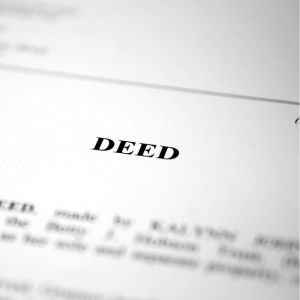
Navigating Minnesota Property Laws for Deed Alterations
When transferring real estate in Minnesota, knowing the property rules for removing someone’s name from a house deed is crucial. In Minnesota, the first step in the legal process is to find the current deed to the land. You can usually take care of it at the county recorder’s office.
To change a deed, you need to sign a new deed form, which could be a quitclaim deed, a guarantee deed, or something else. It is imperative that everyone agrees with the change and signs the paper in front of a notary public.
Minnesota law requires precise adherence to legal descriptions and recordation procedures to avoid complications. Filing fees are applicable when submitting the modified deed to the county recorder’s office for official recording.
It might help to talk to a lawyer to ensure you’re following the rules in your state about changing property titles and to handle any problems that might arise during this process.
Understanding the Implications of Removing a Co-owner From a Deed
In Minnesota, removing a co-owner from a house deed has several significant effects that owners must consider carefully. The property’s ownership changes when someone removes a name from the deed. A title issue can impact legal duties, mortgage payments, and tax obligations.

In Minnesota, changing ownership on a deed typically requires filing a quitclaim deed or warranty deed with the county recorder’s office, ensuring that the transfer complies with state real estate laws. Understanding how this change may impact property taxes and local government records is crucial.
If there is a debt on the property, the lender may also need to agree before removing a co-owner from the title. This step is crucial because it stops problems with the loan terms or the default process.
Talking to real estate lawyers or other professionals can help you through this complicated process and make sure that all of your legal and financial needs are met. Knowing these effects helps you protect your own interests and makes Minnesota real estate deals go more smoothly.
If removing a co-owner from your Minnesota deed seems complex, selling your house for cash may be the most straightforward solution to avoid potential title issues, lender complications, and tax implications, while allowing you to move forward confidently. You may also read other FAQ’s here.
How Joint Tenancy Affects the Removal of Names From a Deed
In Minnesota, it’s essential to know how shared tenancy affects the process of taking someone’s name off a house deed. Joint tenancy is a way to own land where two or more people have an equal share and the right to inherit if one dies.
So, if one joint tenant dies, their share goes to the other joint tenants right away, without going through the probate process. If you are getting a divorce, breaking up, or having other personal problems, it may be harder to get someone’s name taken off a contract.
To remove a name from a jointly held property deed in Minnesota, all parties must agree and sign a new deed that relinquishes the interest of the removed party. Typically, this involves executing a quitclaim deed or warranty deed to transfer ownership interests appropriately.
It’s essential to make sure that these legal papers are written correctly and sent to the right county recorder’s office so that the change is legally recognized. Talking to a real estate lawyer can help you get through any problems with joint tenancy during this process.
The Role of Quitclaim Deeds in Changing Property Ownership
In Minnesota, removing a name from a house deed often involves using a quitclaim deed, an essential tool in real estate transactions. Property owners use a quitclaim deed to transfer ownership without guaranteeing a clear title, making it a suitable option for situations involving family members or divorce settlements where trust already exists.
Executing a quitclaim deed is the best way to remove someone’s name from a house deed because it gives the remaining owner(s) all that person’s rights. You must fill out this form and sign it before a notary public for it to be legal.
The quitclaim deed must be filed with the Minnesota county recorder’s office where the land is located once it has been signed and notarized. It’s crucial to understand that while quitclaim deeds can alter the property’s ownership, they cannot alter any existing mortgages. Everyone concerned should think about how the change in property ownership may impact their financial responsibilities and, if required, consult a lawyer.
Essential Documents Required for Changing Names on a Property Deed
When changing names on a property deed in Minnesota, gathering the essential documents is crucial for a smooth real estate transfer process. The primary document required is the current deed, which serves as proof of ownership and outlines the existing property details.

Depending on your situation, you must also fill out a new deed form, usually a quitclaim or a guarantee deed. The updated information about who owns what must be made clear in this new deed.
Both parties involved in the name change must provide valid identification to verify their identities during the transaction. Obtaining a certificate of real estate value is essential if any consideration is involved in the transfer.
To avoid problems, ensure all law descriptions are correct and match county records. The signatures must be notarized before taking the new deed to the county recorder’s office, where the land is located, to be recorded.
This crucial step in changing property deeds in Minnesota is finally completed by paying any required recording fees.
If gathering all the documents to change names on your Minnesota property deed feels overwhelming, selling your house for cash can be a faster, stress-free alternative that helps you skip the paperwork and move on with ease. Contact Henry Home Buyer to sell your house fast.
How to Legally Remove a Name From a Property Deed in Minnesota
Understanding real estate transfers and following state rules are crucial for properly removing a name from a property deed in Minnesota. To determine the precise ownership structure and who is involved, start by reviewing the current deed.
The next step typically involves drafting a new deed, often a quitclaim deed, which will transfer the interest of the party being removed to the remaining owner(s). This document must be accurately prepared and signed by all relevant parties before a notary public to ensure its validity.
To update public records and properly acknowledge the change in ownership, this newly executed deed must be filed with the county recorder’s office where the property is located. A real estate lawyer or financial advisor can offer helpful advice because transferring property rights may have tax ramifications or impact any current mortgage on the property.
Understanding these legal procedures makes deleting a name from a Minnesota house deed easy.
Preparing for a Successful Application to Change a Name on a Deed
Before you start the process to get someone’s name taken off of a Minnesota house deed, you need to make sure you’re well-prepared. First, get all the papers you need, like the current deed, photo IDs for everyone involved, and any legal papers that show you own or have an interest in the land.
It is very important to know Minnesota’s real estate rules, especially those that deal with title transfers and quitclaim deeds. Talking to a good real estate lawyer can help you understand the law and avoid problems.
Additionally, it is imperative to confirm that all outstanding obligations or liens associated with the property have been resolved, as they have the potential to complicate the transfer process. To ensure that the necessary signatures are obtained on the new deed, it is imperative that all parties involved maintain open communication.
Checking with local county recording offices for specific filing procedures and fees is advisable to avoid delays, as each county may have unique regulations regarding real estate transactions. By meticulously preparing each element of your application, you increase your chances of efficiently removing a name from a house deed in compliance with Minnesota law.
If you don’t want the hassle and need a fast move, working with investor home buyers in Minnesota and its other cities is the easiest way to sell your house quickly for cash.
Timeline: How Long Does It Take to Change a Name on a Deed?
In Minnesota, the time it takes to remove a name from a house deed depends on several things, such as how complicated the real estate deal is and how quickly everyone works together. Once all the needed papers, like a quitclaim deed or warranty deed, are ready and signed, the next step is to take them to the county recorder’s office.
In Minnesota, this process typically takes between two and four weeks. However, it is crucial to ensure that all legal requirements are met to avoid delays.
This includes making sure the deed is filled out properly and notarized before sending it in. Before officially recording the changes, the county recorder’s office will check the paperwork to make sure it is correct and complete.
If any problems come up during the review process, it could make the deadline much later. Also, working with mortgage lenders or other financial institutions may take longer if there are loans on the property that need to be changed because the owner has changed their mind.
Efficient communication with all parties involved and thorough preparation of required forms are essential to expedite this process and facilitate a smooth transition for updating a house deed in Minnesota.
How Do I Remove Someone’s Name From a Deed?
In Minnesota, taking someone’s name off a house deed requires a few important steps to make sure the move goes smoothly. Before you start, you need to know what kind of ownership interest you have in the property. For example, tenancy in common or joint tenancy? This will change the process.
A Quit Claim Deed must be filled out and filed with the county recorder’s office where the land is located in order to remove a name from a deed. This legal form gives ownership rights to someone else and must be filled out completely and correctly with all the necessary details, such as the legal description of the property and the names of both parties.
It is also crucial to have the document notarized before submission. Additionally, consulting with a real estate attorney can provide guidance on ensuring compliance with Minnesota’s specific legal requirements for property deeds and avoiding potential complications during the transfer process.
Remember that taking someone’s name off a house deed might have tax effects, so you might want to talk to a tax expert about your case. Carefully following these steps will help you get someone’s name off of your Minnesota property deed in a way that works and is legal.
How Much Does It Cost to Remove a Name From a Deed?
There are a number of things to think about when figuring out how much it will cost to take a name off a house deed in Minnesota. The main cost is usually hiring a real estate lawyer, who can help and make sure that all the legal steps are followed throughout the transfer of property.

Fees for lawyers can be very different based on how hard the case is and how much experience the lawyer has. In addition to the lawyer’s fees, there may be fees for filing papers at the county recorder’s office.
In Minnesota, towns usually charge a fee to record quitclaim deeds or warranty deeds, which are used in these kinds of deals. When changing the records of who owns a house, it’s also important to think about any title insurance changes that might be needed.
People who want to save money might try to do it themselves, but it’s best to talk to a real estate agent first so you don’t make mistakes or wait too long, which will cost you a lot of money. It costs money to take someone’s name off a deed in Minnesota, but if you follow the right steps, you can protect your property rights and avoid future legal issues.
Instead of worrying about the costs and legal steps to remove a name from your Minnesota house deed, you can choose a more straightforward path by selling directly to this company that buys homes in Apple Valley and nearby cities in Minnesota, making the process fast and hassle-free.
What Are the Tax Consequences of Removing a Name From a Deed?
It’s important to know what the tax implications can be when you take someone’s name off a house deed in Minnesota. One important thing to think about is how it will affect your property taxes. If you take someone’s name off a property, it could cause the property to be reassessed, which could change how much you owe in taxes.
Also, if the person whose name is being taken off is giving up ownership stake without getting anything in return, this could be seen as a gift and be subject to federal gift tax rules. If part of the deal involves selling an interest in the property, it’s vital to think about whether capital gains taxes would apply.
Consulting with a real estate attorney or tax professional can provide clarity on how these factors specifically affect your situation and ensure compliance with Minnesota’s real estate transfer laws. Understanding these tax implications helps avoid unforeseen liabilities and ensures a smooth transition when altering property ownership in Minnesota.
Do you need to sell your home? Sell quickly, avoid costly repairs, or prefer a hassle-free sale. Call us at (612) 430-8822. We offer fair cash offers, handle all the details, and make the process seamless.
Helpful Minnesota Blog Articles
- Successfully Selling A House With Title Issues In Minnesota
- Essential Guide To Selling Your Rental Property In Minnesota
- Facts About Minnesota’s Unique Homes And Real Estate
- Is Minnesota A Safe Place To Buy A Home?
- Expert Minnesota Property Management
- How To Remove A Name From A House Deed In Minnesota
- Condemned House Requirements in Minnesota
- Can the Executor Change the Will in Minnesota?
- Way to Avoid Capital Gains Tax in Minnesota
- How Long After an Appraisal Can You Close in Minnesota

| PROPERTIES | QUIT CLAIM DEEDS | CO-OWNERSHIP | TENANTS IN COMMON | TENANT IN COMMON | RIGHT OF SURVIVORSHIP |
| JOINT TENANTS WITH RIGHT OF SURVIVORSHIP | TENANCY BY THE ENTIRETY | CHILD | CHILDREN | BREACH OF WARRANTY | WARRANTIES |
| TRUST LAW | REVOCABLE LIVING TRUST | REVOCABLE TRUST | LIFE ESTATE | LIFE TENANT | CERTIFICATE OF TITLE |
| GRANTOR | MARKET VALUES | LAWYER | LEGAL SERVICES | ENTITY | REAL PROPERTY |
| ESTATE PLANNING | GUARANTEES | PAYMENTS | DEATH CERTIFICATE | TITLE SEARCH | TITLE SEARCHES |
| RAMSEY | RAMSEY COUNTIES | COUNTY CLERK | INHERITANCE | DUE DILIGENCE | AFFIDAVIT |
